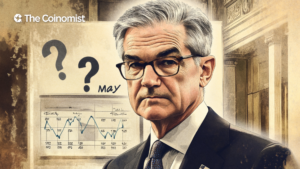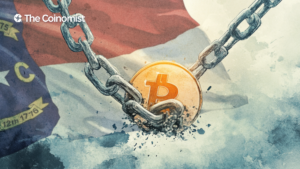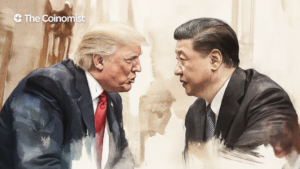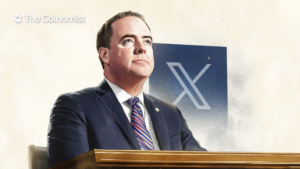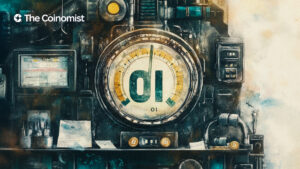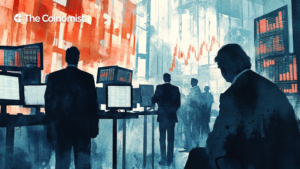The £3M Bitcoin Toss: One Woman’s Costly Crypto Mistake
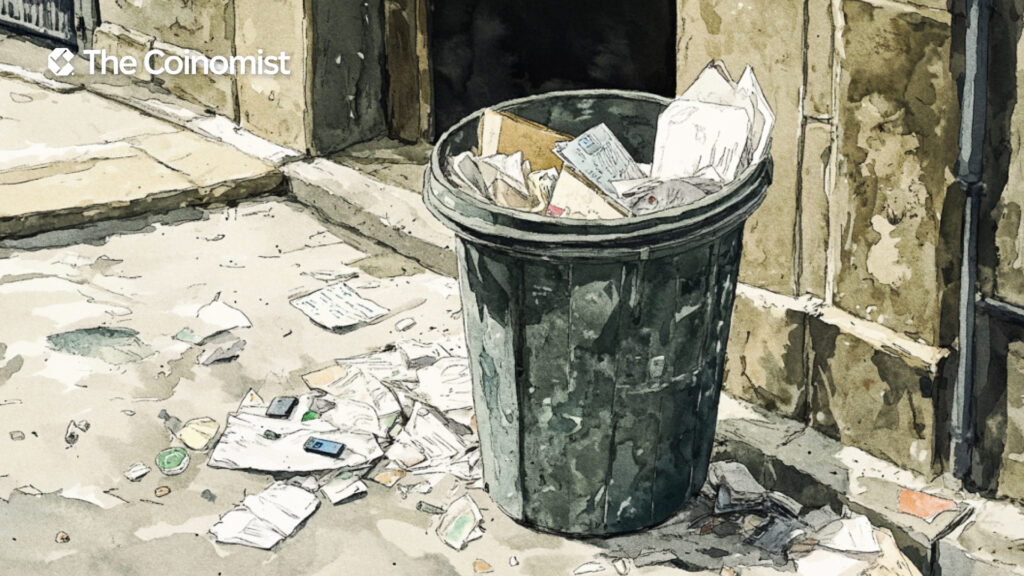
A spring cleaning turned into a costly crypto accident when a woman unknowingly threw away a USB drive holding £3 million in Bitcoin.
On this page
- A Quiet Fortune in a Junk Drawer
- A Bitcoin Bet Before the Hype
- One Simple Question That Could Kill
- A Panicked Attempt to Undo It All—Too Late
- A Crypto Misfortune Hiding in Plain Sight
- The Lost Digital Wallet That Broke a Heart
- Crypto Lost Forever: The Hidden Risks of Cold Storage
- A Relationship Under Pressure: Can Love Survive a Bitcoin Loss?
- Lessons from a £3 Million Mistake
- Crypto Lost, but the Lesson Remains
It was just a drawer—the kind everyone has at home, filled with tangled wires, old receipts, dead batteries, and forgotten USB drives.
However, for Ellie Hart, a 34-year-old primary school teacher from Market Harborough, this drawer became the center of a devastating crypto misfortune she now describes as “the worst mistake I’ve ever made”.
One day, during a routine spring cleaning, Ellie made a decision that would follow her for years. She threw away a small black USB flash drive, assuming it was just an old school memory stick.
Unfortunately, she didn’t realize that this small, unremarkable device held access to a fortune.
£3 million in Bitcoin—thrown out with the trash.
A Quiet Fortune in a Junk Drawer
A Bitcoin Bet Before the Hype
Ellie’s partner, Tom, a 36-year-old web developer, invested in Bitcoin back in 2013, when it was still considered a fringe experiment. At the time, crypto was cheap, speculative, and largely ignored by the mainstream financial world.
However, Tom saw the potential early. He bought in and stored his coins on a USB stick, using it as a cold wallet to keep the assets offline and safe from cyberattacks.
That small black flash drive might have held their entire future.
One Simple Question That Could Kill
Yet, there was one thing the flash drive wasn’t protected against—a spring cleaning.
During a routine spring clean-up, Ellie found the USB flash drive buried in a junk-filled drawer. She assumed it was an old school memory stick. What else was there to do but throw it out?
Days later, Tom asked:
“Have you seen that little black USB stick I use for my Bitcoin?”
Ellie froze.
I knew instantly. My heart just sank.
A Panicked Attempt to Undo It All—Too Late
Realizing what had happened threw the couple into a panic. They tore open garbage bags, dug through recycling bins, and searched every corner of the house. Hope wrestled with despair, but deep down, Ellie already knew that it was too late.
The USB drive was gone.
So was £3 million worth of Bitcoin.
And so was the future they had hoped to build with it.
It’s hard to move past something like this. You replay it constantly, the moment you picked it up, the second it landed in the bin,
Ellie said.
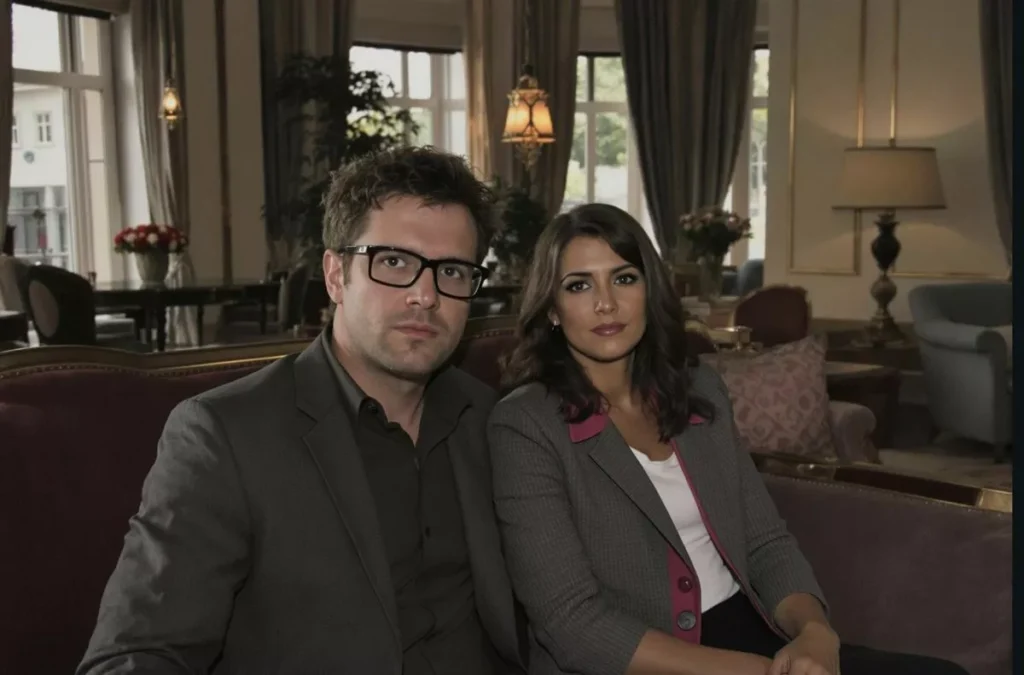
A Crypto Misfortune Hiding in Plain Sight
To outsiders, it might seem unthinkable—how could someone throw away something so valuable? But that’s the essence of this real-life Bitcoin loss: digital wealth doesn’t look like wealth. It doesn’t shine, it doesn’t weigh anything. Most of the time, it lives on tiny, fragile devices that are easy to overlook among everyday clutter.
It was just sitting in a drawer with junk. I assumed it was mine,
Ellie explains.
The crypto community quickly picked up the story. Reddit filled with shock, sarcasm, and even conspiracy theories.
Who leaves a £3 million thumb drive in a junk drawer?
one commenter asked.
That’s not just her fault. He stored their future next to old batteries.
Some speculated that the crypto accident might be a cover story—a staged “accident” to hide funds or dodge taxes. Others believed Tom never told Ellie how valuable the drive was.
However, through all the noise, one key takeaway stood out: a lack of clear communication between partners… and the absence of any backup.
Related: Bitcoin Wealth: How Families Are Funding Dreams With Crypto
The Lost Digital Wallet That Broke a Heart
Ellie says Tom took the news with quiet dignity. He didn’t yell. He didn’t point fingers.
But his silence, she recalls, “said it all.”
The lost Bitcoin wasn’t just an investment.
It was time. It was a risk he took long before the world caught crypto fever. Not only that, but it was the belief in a new financial system that few understood back then.
Now, that belief had turned into a Bitcoin loss. Not due to fraud. Not due to a market crash. But because of a simple, everyday mistake.
That money would have been our future. And I threw it out with a handful of junk mail,
Ellie admitted.
The tech world often worries about hackers and regulatory crackdowns.
However, this story serves as a reminder: sometimes, the greatest risks are right in front of us.
Crypto Lost Forever: The Hidden Risks of Cold Storage
The story of Ellie and Tom is just one chapter in the growing list of crypto lost due to human error.
It echoes the infamous case of James Howells, a Newport resident who accidentally threw away a hard drive containing thousands of bitcoins. For years, Howells has been seeking permission from his local council to excavate the city's landfill in hopes of finding it.

Even though Tom's crypto stash was far smaller, the lesson is the same: one single point of failure can erase everything.
Reddit users flooded the thread with similar stories:
- nearly discarded USB drives,
- hard drives that ended up in the wrong place,
- wallets forgotten on wiped laptops.
It’s not just Ellie. We’ve all underestimated how fragile digital ownership really is,
one commenter noted.
Experts consistently emphasize the importance of backing up cold wallets, whether it's a USB stick, an external drive, or a hardware device.
That backup comes in the form of a seed phrase, a randomly generated set of words that lets you restore access to your crypto if the device is lost or destroyed.
But according to some Reddit detectives, Tom likely never created one.
If true, this wasn’t just Ellie’s accident—it was a failure to take even the most basic precautions.
A Relationship Under Pressure: Can Love Survive a Bitcoin Loss?
Beyond the lost fortune, many asked a deeper question: can a couple survive this? Can love withstand the real-life weight of a vanished fortune?
Some Reddit users were doubtful:
He’ll never be able to look at her the same way again. Every dinner, every glance, he’ll see £3 million missing,
one person commented.
Others showed more empathy:
She probably feels worse than he ever could. That kind of guilt eats you alive.
For Ellie, the pain is still raw.
She admits that even thinking about it makes her feel sick. Sleepless nights have become the norm, and she keeps replaying that one moment when the flash drive slipped into the trash.
And yet, despite it all, Tom stayed.
Whether it’s love, loyalty, or the lingering shock, he hasn’t left. At least, not yet.
Lessons from a £3 Million Mistake
This isn’t just a story about Bitcoin loss.
It’s a story about trust, memory, and how easily something invaluable can disappear when it doesn’t look like anything important.
If you’re storing funds on a USB stick, label it. Lock it away. Make a backup. Talk to your loved ones.
Because one careless move, one spring cleaning, one ordinary drawer, and it can all disappear.
If anyone out there is keeping money, or anything important, on a USB stick, please label it, lock it away, don’t make the same mistake I did,
Ellie warns.
It’s a hard lesson. But maybe that’s exactly why she chose to speak up.
Maybe saying it out loud helps her carry the weight.
Or maybe, just maybe, her story will save someone else from the same fate.
Related: Preserve Family Memories on the Blockchain
Crypto Lost, but the Lesson Remains
In the world of crypto, it’s easy to ignore stories like this. The market moves fast. Prices surge and crash.
But for Tom and Ellie, it wasn’t just a price chart. It was their life.
One mistake turned into a warning for others.
No hacks. No scams. And no economic meltdown.
Just a black flash drive, lost in a junk drawer.
And a future—thrown away with it.
The content on The Coinomist is for informational purposes only and should not be interpreted as financial advice. While we strive to provide accurate and up-to-date information, we do not guarantee the accuracy, completeness, or reliability of any content. Neither we accept liability for any errors or omissions in the information provided or for any financial losses incurred as a result of relying on this information. Actions based on this content are at your own risk. Always do your own research and consult a professional. See our Terms, Privacy Policy, and Disclaimers for more details.






